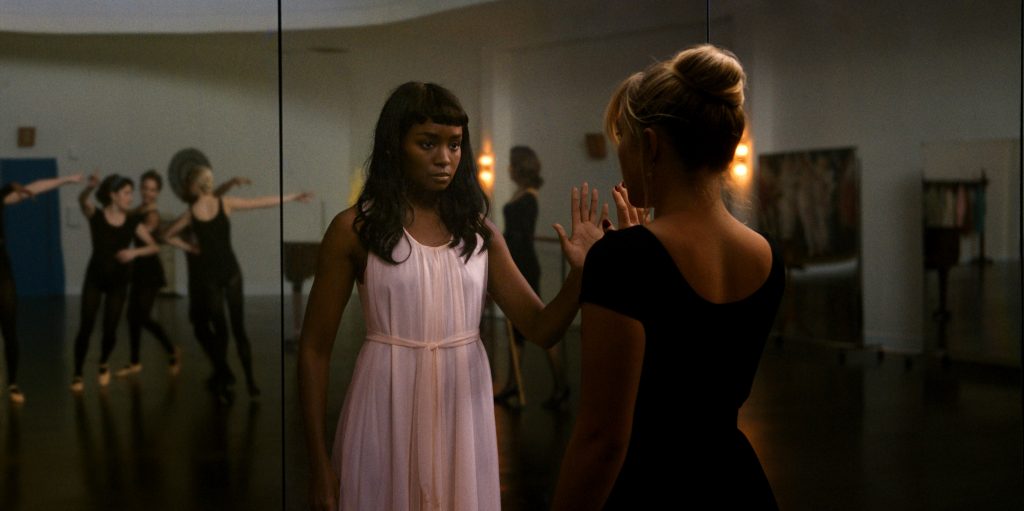Olivia Wilde’s Don’t Worry Darling has been in the headlines for weeks now but for all the wrong reasons. The drama surrounding the film’s production, from alleged on-set conflicts to ongoing stories leading up to the film’s promotion, have all taken the focus away from the film itself. That may be a positive thing; as the saying goes, “all press is good press,” and the allure of the film surrounded by all this drama may actually be more intriguing than the psychological thriller presented in Don’t Worry Darling. It’s not an entirely bad film, but the meager trail of breadcrumbs it leaves is hardly a fulfilling meal by the end.
Alice (Florence Pugh) and Jack Chambers (Harry Styles) live an idyllic life together in the company town of Victory, California where Jack works for the enigmatic Frank (Chris Pine) on something they only know as the “Victory Project.” Alice and the rest of the women in the community enjoy the perfect pleasures of being housewives while their husbands are at work. But beneath all the smiles and opulence lies a hidden secret that, if revealed, threatens the desert oasis they all call home.
I’m a huge fan of Olivia Wilde’s directorial debut Booksmart, which turned out to be intelligent, heartwarming, and funny and put Wilde on my list of directors to follow. Don’t Worry Darling is about as far away a departure from Booksmart as one can get, not only in content but also in delivery. It’s a psychological thriller that takes inspiration from The Stepford Wives but fails to add anything new to the conversation. Like its characters, the film seems to be placed under a spell and just going through the motions as audiences can tell that something doesn’t feel quite right. There are the beginnings of conversations surrounding the patriarchy and the culture of domesticity that has been around for decades, but Don’t Worry Darling would rather use the implications for shock value rather than anything meaningful. Everything is tied together with the thinnest of strings.

The strongest thread, however, is Florence Pugh’s performance. On the surface Alice is all smiles, but even from the very beginning of the film you can sense that something is brewing deep within her. She has a so-called perfect life with a beautiful house, a loving husband, and a secure community, and yet she has these sense that something isn’t quite right. As she discovers bits and pieces of the real truth behind the “Victory Project” her concerns are brushed away by others as her being just another hysterical woman. Pugh is captivating in her performance, capturing both the beauty and elegance and sheer terror of living in this seemingly perfect paradise. Whether she’s portraying the dainty housewife or a captive under control, there’s a strength in her that comes through. Even though the script doesn’t deliver on all fronts, Pugh makes it work as best she can.
Don’t Worry Darling doesn’t leave much of a lasting impression. It’s a mediocre sophomoric effort from Olivia Wilde that has some good ideas but lacks the necessary elements to follow through on them. There is some style and flourish brought to the screen by Pugh and the production design, although it’s all surface level like the town of Victory. It’s unfortunate that the behind-the-scenes drama will likely outshine anything from the film itself. Ultimately there are other things worth worrying about.
-
Don't Worry Darling
Summary
The film is a psychological thriller that takes inspiration from The Stepford Wives but fails to add anything new to the conversation. Like its characters, the film seems to be placed under a spell and just going through the motions as audiences can tell that something doesn’t feel quite right. There are the beginnings of conversations surrounding the patriarchy and the culture of domesticity that has been around for decades, but Don’t Worry Darling would rather use the implications for shock value rather than anything meaningful.







